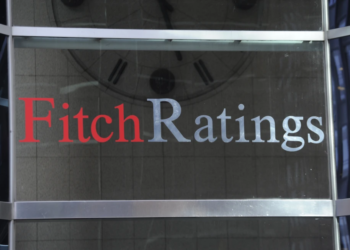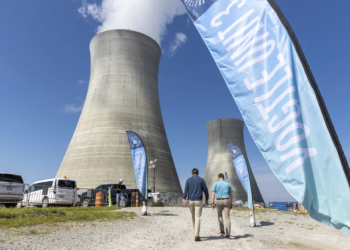Germany’s economy minister expressed satisfaction on Friday with the European Union countries’ agreement to significantly raise the bloc’s renewable energy target for 2030. The package, approved by representatives of the 27 member states, increases the current goal of 32% to 45% by 2030. In 2021, renewables accounted for about 22% of the EU’s total energy consumption, meaning the new target aims to double that amount within a decade.
The agreement includes specific provisions to accommodate the interests of different member states, including clauses related to hydrogen production. Economy Minister Robert Habeck, who oversees energy and climate matters, emphasized that the new European regulations will generate a surge in investment for renewable energy and enforce their adoption.
The ongoing conflict between Russia and Ukraine has expedited the EU’s transition towards green energy. Over the past year, the bloc has reduced its reliance on Russian fossil fuels and increased its utilization of renewable energy sources.
Germany’s economy minister expressed his satisfaction on Friday with the agreement reached among European Union countries to significantly increase the bloc’s renewable energy target for 2030. The current goal of 32% will be raised to 45% by 2030, following the approval of representatives from the 27 member states. With renewables accounting for about 22% of the EU’s total energy consumption in 2021, this new target aims to double that amount within less than a decade.
The deal includes several exceptions to accommodate the interests of different member states, including specific provisions regarding hydrogen production. Economy Minister Robert Habeck, responsible for energy and climate matters, emphasized that the new European regulations will stimulate a surge in investments for renewable energy and enforce their adoption as legally binding.
The ongoing conflict between Russia and Ukraine has expedited the EU’s transition towards green energy. Over the past year, the bloc has reduced its reliance on Russian fossil fuels and increased its utilization of renewable energy sources.
As part of the new rules, countries failing to sufficiently increase their annual addition of solar, wind, and other renewable energy sources could face fines imposed by the EU. The share of renewables must increase by 0.8 percentage points each year until 2025, after which it will need to rise by 1.1 percentage points.
This will result in the installation of over 100 gigawatts of new wind and solar capacity across the bloc each year, according to Habeck’s office. Specific targets for renewable energy use will be set for the energy, housing, industrial, and transport sectors.
The agreement faced delays due to demands from France and several eastern European countries, who argued that hydrogen produced with nuclear power should count toward renewable energy targets. The German government, however, opposed this, and it has been decided that hydrogen produced with nuclear power will not be considered renewable energy. Nevertheless, there will be “a bit more flexibility” regarding hydrogen targets for countries that meet their renewable energy goals.
Additionally, the countries agreed to introduce binding quotas for the use of e-fuels, made using renewable energy, in the aviation sector. The share of e-fuels in aviation will start at 1.2% in 2030 and gradually rise to 35% by 2050. Furthermore, biofuels derived from waste products and other renewable resources will need to account for an additional 35% of aviation fuels by the middle of the century.






























